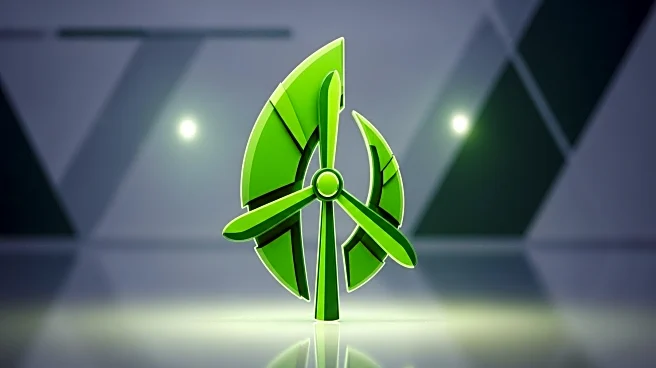What is the story about?
What's Happening?
The Trump administration is actively hindering the development of clean energy projects in the United States. This includes blocking permits for wind and solar projects on federal lands and rolling back federal subsidies and tax credits. A notable example is the stop-work order on the Revolution Wind offshore project, which was 80% complete. These actions are part of a broader regulatory assault that contradicts the administration's declared energy emergency. Meanwhile, other countries, particularly China, are advancing rapidly in renewable energy sectors, positioning themselves as global leaders in clean technology.
Why It's Important?
The U.S. is at risk of falling behind in the global clean energy race due to the Trump administration's policies. While China and other nations are investing heavily in renewable energy, the U.S. is scaling back support, potentially losing economic and political advantages. This could impact the U.S. economy by reducing its competitiveness in emerging industries like solar and wind energy. Additionally, the rollback of clean energy initiatives may hinder efforts to reduce greenhouse gas emissions, affecting global climate change mitigation efforts.
What's Next?
If the current policies continue, the U.S. may see a decline in clean energy investments and job creation in this sector. Political leaders and industry stakeholders may push for policy reversals to align with global trends and maintain competitiveness. The upcoming elections could also influence future energy policies, depending on the administration in power.
Beyond the Headlines
The U.S. approach to clean energy could have long-term implications for its role in international climate negotiations and its relationships with countries in the Global South seeking affordable clean energy solutions. The current trajectory may also affect domestic public opinion on energy policy and climate change.















